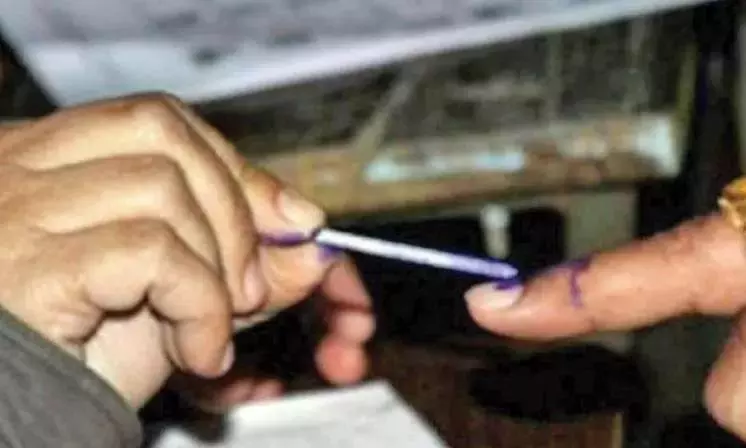India plans fiscal stimulus ahead of 2024 state polls

New Delhi: Ahead of some state Assembly polls this year and early next year, the government is cautious about the fiscal stimulus as it may trigger India's tag as the fastest growing economy in the world in some way or the other. Sensing slow progress on some key economic indicators, including fiscal deficit, inflation, manufacturing activities and digital infrastructure among others, the Centre is likely to take some proactive measures in the next half of this current fiscal year (2024-25) to boost the country’s economy, a government source said on Sunday.
Keeping the current fiscal challenges in view, the government is learnt to have identified some key sectors to augment economic activity by reducing taxes and increasing government spending as well. “We have already initiated the review process and will soon take corrective measures in these sectors. They include green energy, semiconductor, steel & mines, agriculture, health, skill & development and education among others,” the source said.
Nevertheless, a huge outgo of government subsidies, both economic and social service sectors has been a one of the main concerns to maintain the country’s fiscal balance. “The bulk of the central government’s subsidies arise on the provision of economic services which account for more than 80 per cent of the total subsidies whereas the recovery rates in the social and economic services are very low. The government, however, is pushing hard on the production-linked incentives or PLI schemes, especially for MSMEs in order to improve the business environment and increase the manufacturing output in the country,” the source said.
“As some state Assembly elections in Maharashtra, Jharkhand, Haryana, Jammu & Kashmir will be completed this year whereas Delhi and Bihar will go to polls next year, the government needs to rethink this factor before announcing its annual budget for FY 2025-26 next year. The need of the hour is to deeply look into the under-performing sectors such as manufacturing, services, health and education among others to watch out for,” the source added.
As per the recent report by finance ministry, the government claimed that India would achieve 6.5-7 per cent gross domestic product (GDP) growth in the current fiscal as indicated by the movements in high-frequency indicators till August with strong foundations of macroeconomic stability having steady growth, investment, employment and inflation trends as well. “As a challenge on the macroeconomic front is navigating the continuing uncertainty in global economic prospects. We will likely encounter a cycle of policy rate cuts globally amid fears of a recession in advanced economies and continuing geopolitical conflicts,” the source said.
Last week, the government also announced that in a move to maintain its budgeted borrowing programme for this fiscal, it will sell bonds worth Rs 6.61 lakh crore for the second half of FY25 in line with the Budgeted target with fiscal deficit at 4.9 percent. The Centre had budgeted Rs 14.01 lakh crore of gross borrowing for FY25 in the last Budget, down from Rs 14.13 lakh crore in the interim Budget. The reduction in borrowing is likely to help contain the fiscal deficit, where the government has set this aggressive target of 4.9 percent compared with 5.1 percent in the interim Budget.
However, economists and analysts said that aided by the favourable outlook for revenues and a possible undershooting of the ambitious capex target, the fiscal deficit to print in line with or mildly trail the FY’2025 of Rs 16.1 lakh crore or 4.9 per cent of GDP, at the current juncture. “Therefore, the market borrowings appear unlikely to exceed the announced level for H2 FY2025,” said Aditi Nayar, chief economist at ICRA Ltd.
On the investment front, the government has been taking a series of measures in the past, and it is now mulling setting up a foreign investment regulatory mechanism for post-investment review and monitoring in the country. India is a major destination for foreign direct investments given its 1.4 billion market, stable policies, demographic dividend, good investment returns and skilled workforce. “It has been observed that all countries do oversight on the foreign direct investment (FDI), which is coming into their country. People suggest that in India also, there should be an oversight mechanism. It's a kind of oversight on money, which is coming up in the country as FDI,” said another source.

